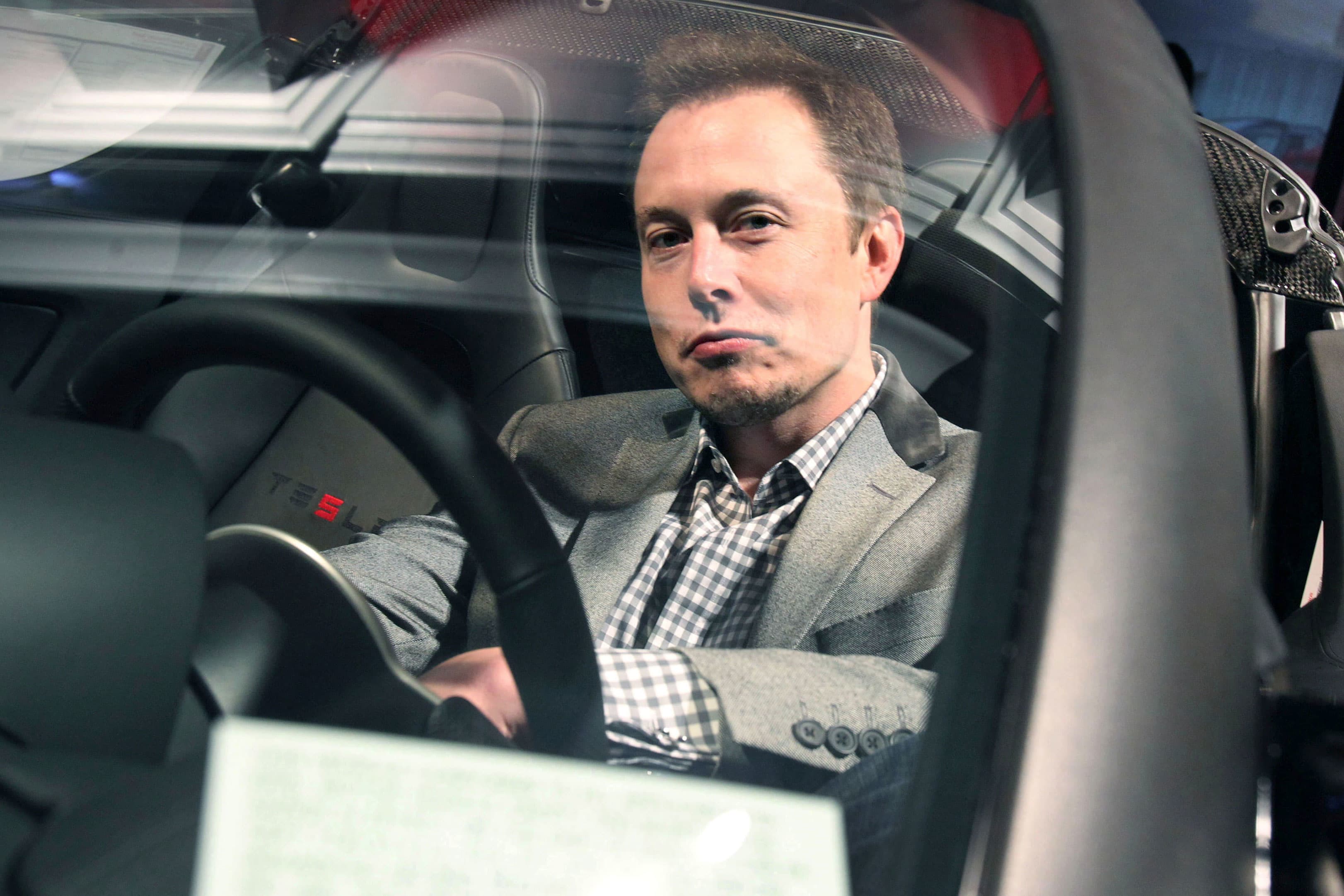Thirteen years ago, Tesla was regularly criticized for only “making toys for rich people,” as co-founder and CEO Elon Musk put it at the time.
But Musk had a vision for the automaker’s eventual path toward affordable electric vehicles. And today, his predictions seem eerily accurate.
On Tuesday, Tesla car owner membership group Tesla Silicon Valley Club resurfaced and tweeted a 67-second video clip from a 2008 presentation that Musk gave at The Hollywood Hill, a now-defunct membership organization in Santa Monica, California. In the clip, Musk defended the first-generation Tesla Roadster‘s price tag of $109,000 as necessary for the development of more affordable vehicles in the future.
“Whenever somebody buys the Tesla Roadster, every penny that Tesla makes goes into development of lower cost mass-market vehicles,” Musk said, noting that laptops and cellphones went from expensive trinkets to cost-effective necessities over time. “You can’t get to the low-cost cars unless you start with the expensive cars.”
In response to the clip, Musk tweeted on Tuesday: “Wow, 13 years ago.”
Musk’s 2008 analysis was astute. For example, the Compaq Portable laptop, one of the first laptops to be mass produced, debuted in 1983 at $2,995 — the modern-day equivalent of $8,248.58, accounting for inflation. Hewlett-Packard acquired Compaq in 2002, and currently, one of HP’s Chromebook models is on sale for $199.99.
And the tech billionaire’s strategy of using the original Roadster’s proceeds — from those “rich people” — to fund R&D for more affordable options seems to have borne out.
Even after Tesla raised its prices this past weekend, the automaker’s Model 3 four-door sedan still costs $45,190, roughly comparable with competitors like 2021 Nissan Leaf and the 2022 Chevrolet Bolt EUV. Tesla’s Model Y car, a crossover SUV, now costs $58,190 — similar in price to a 2021 Ford Mustang Mach-E SUV.
In the past, Musk has cited supply chain pressures across the automotive industry as an explanation for price hikes. A Tesla representative did not immediately respond to CNBC Make It’s request for comment.
Electric vehicles in the U.S. are on the rise. As of 2020, nearly 1.8 million of them were registered in the U.S., more than three times as many as in 2016, the Paris-based intergovernmental International Energy Agency reported in April.
Still, that’s a relatively small number: 286.9 million vehicles were registered nationwide at the end of 2020, according to DMV and car company data aggregated by automotive digital marketing firm Hedges and Company.
Almost 40% of Americans say that the next time they purchase a vehicle, they’re at least somewhat likely to seriously consider going electric, according to a Pew Research Center report published in June.
But two-thirds of Pew’s survey respondents raised price as an issue, saying they viewed electric vehicles are more expensive than their gas-powered counterparts.
Sign up now: Get smarter about your money and career with our weekly newsletter
Don’t miss:
Daymond John says you can shift the power in any room—as long as you master these skills
